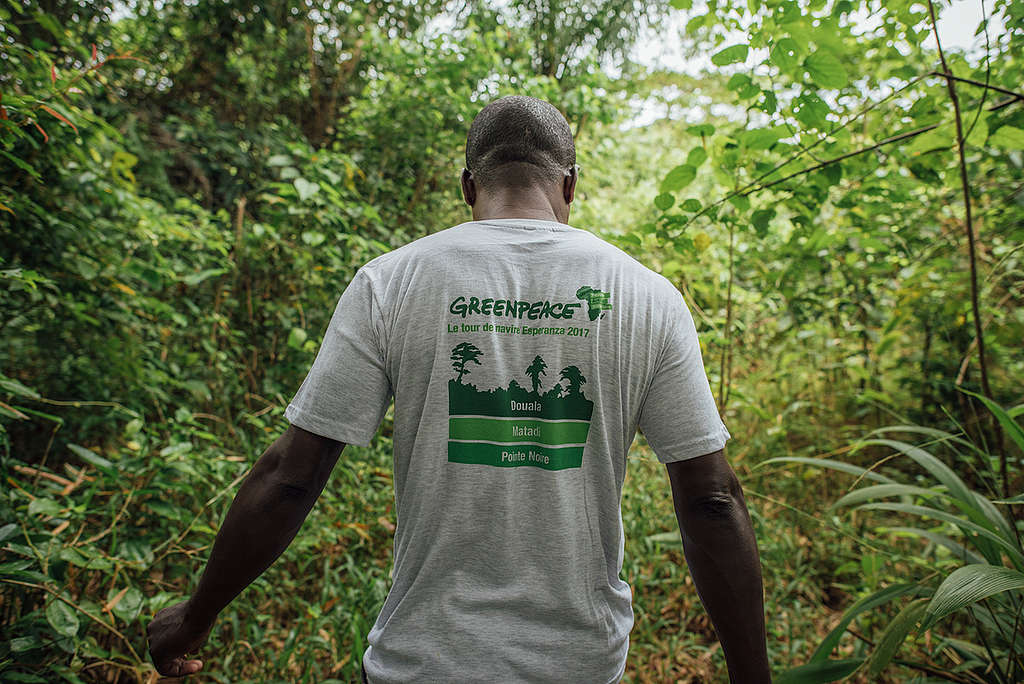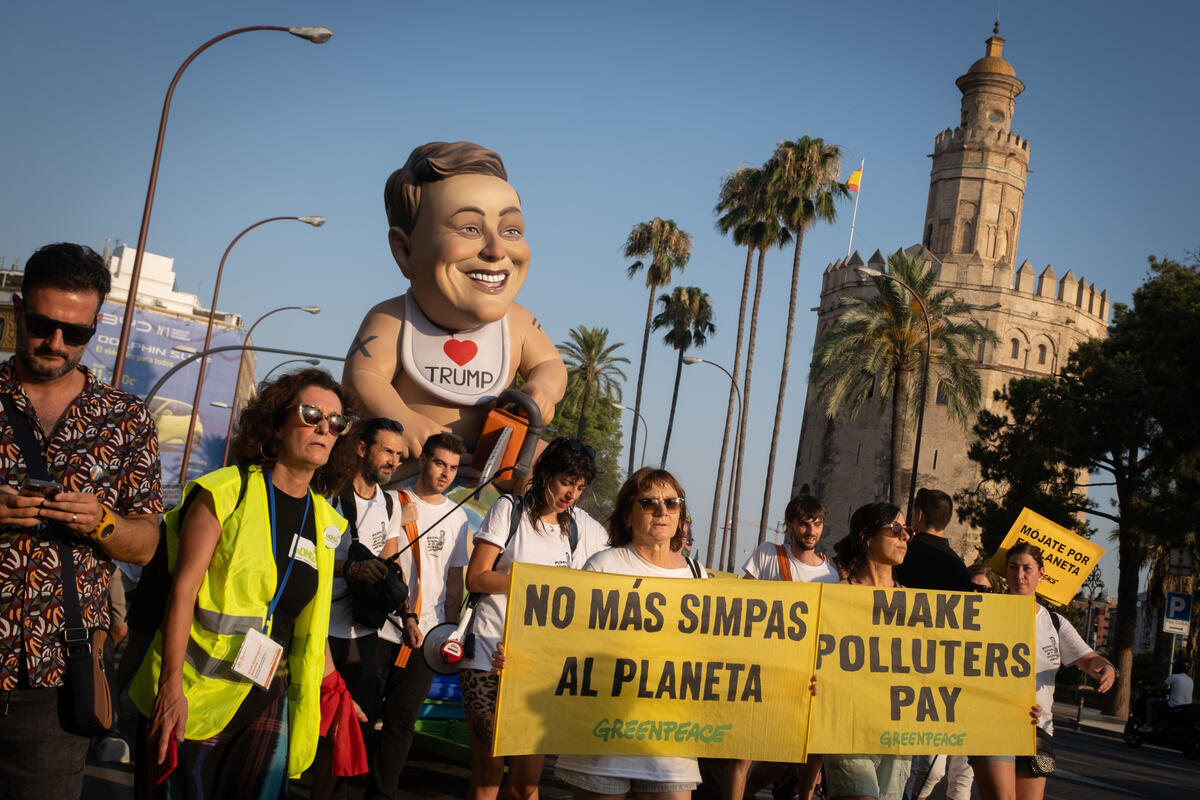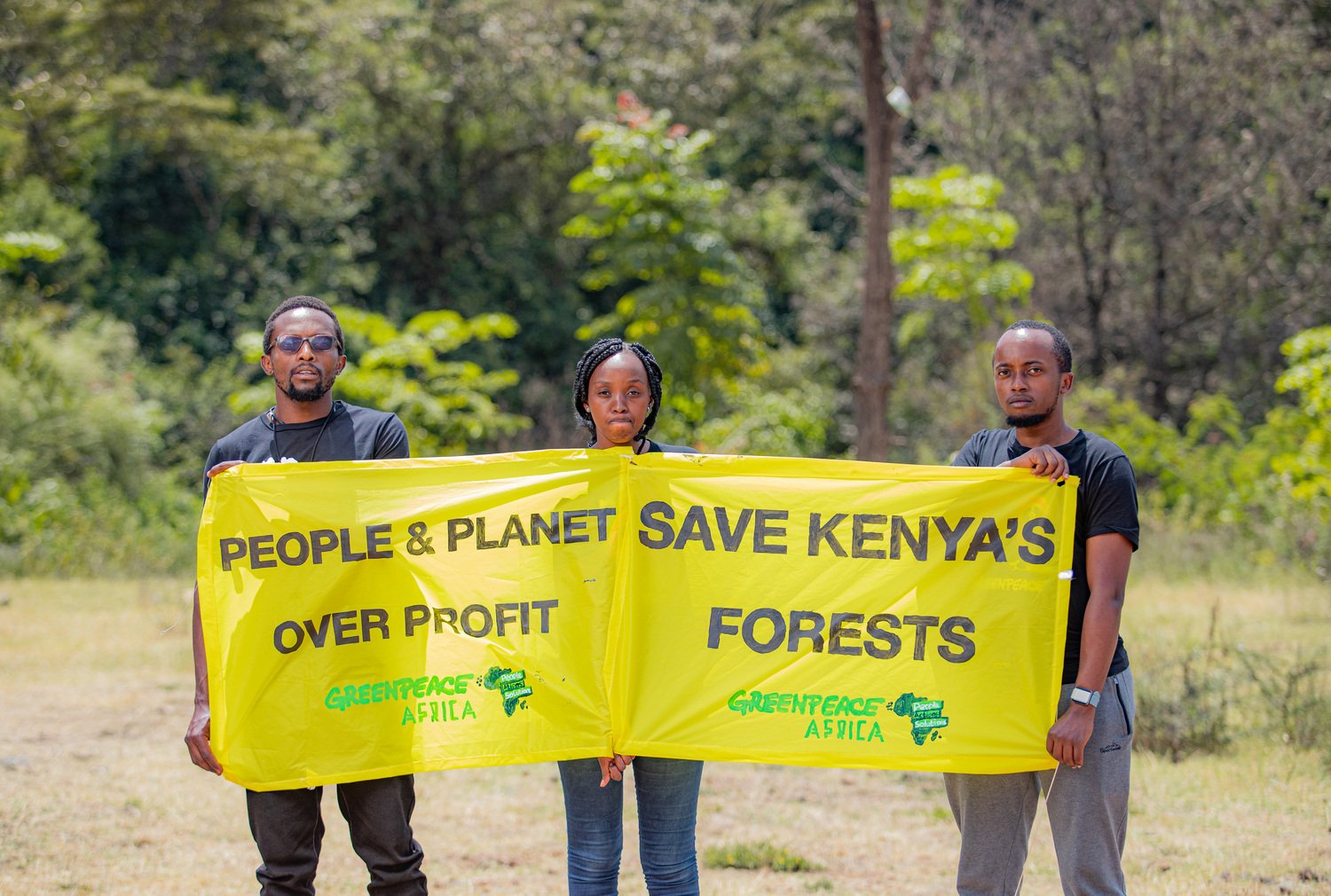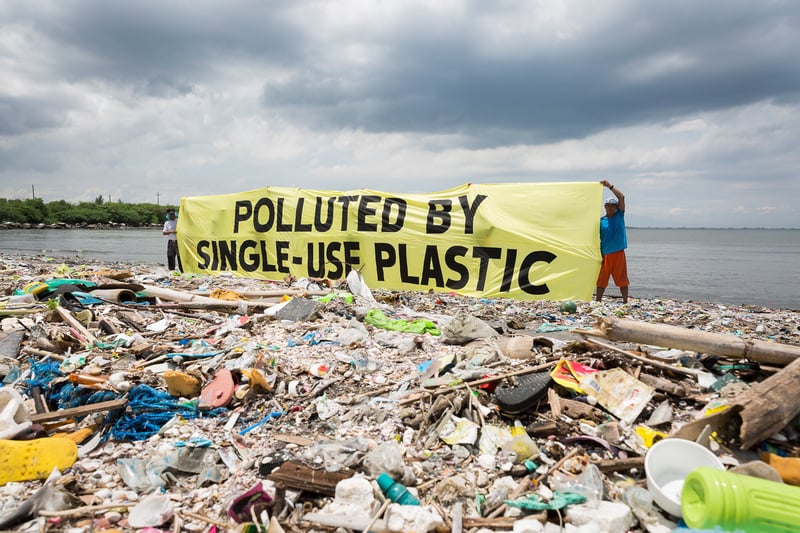His Excellency Ambassador Philippe Van Damme
Head of the Delegation of the European
Union to the Republic of Cameroon
9 August 2021
Re: New EU policies to combat global deforestation must tackle destruction in Cameroon driven by the rubber industries
Dear Ambassador,
We are writing to urge the European Commission to swiftly present ambitious and effective legislation on forest and ecosystem risk commodities, in order to end the EU’s complicity in the destruction of forests and other ecosystems and in the related abuses of human rights and Indigenous People’s rights. We would also like to alert you to the critical importance of including rubber in the scope of the legislation, in light of the detrimental effects that the production of this commodity has on people and the environment in Cameroon.
Throughout the years, Greenpeace has witnessed the detrimental impacts of the expansion of the rubber industry in Cameroon. Cameroon is currently suffering one of the worst cases of deforestation in recent African history, and rubber consumption in the EU, as well as the bloc’s financial sector, bear some responsibility for this destruction.
For example, the Singapore-based rubber producer Halcyon Agri is invested in rubber plantations in Cameroon. Its subsidiary in southeast Cameroon, Sud Cameroun Hévéa (SudCam), displaced Indigenous People and destroyed more than 10,000 hectares of pristine rainforest on the border of the Dja Faunal Reserve, a UNESCO World Heritage site.
Despite this, rubber from this area and from similar plantations is being processed and exported to markets around the world, including to the EU market. The EU’s financial sector is supporting this: Deutsche Bank provided a 21€ million loan to Halcyon Agri – scandalously described as a “sustainability loan” – despite all the negative impacts recorded in its projects in Cameroon, and the continued violation of indigenous Baka communities’ rights.
The case of Halcyon Agri and its subsidiary SudCam proves once again that new EU legislation is urgently needed to regulate the placing of forest and ecosystem risk commodities on the EU market in order to halt deforestation, forest degradation, ecosystem conversion and degradation, and the human rights violations driven by EU consumption.
As we have laid out in our policy briefing, this new law should:
- Apply to natural rubber as a key forest and ecosystem risk commodity;
- Set sustainability requirements for all forest and ecosystem risk commodities and products placed on the EU market, and address human rights impacts, deforestation, forest degradation and the conversion or degradation of natural ecosystems other than forests;
- Apply to the financial sector, obliging financial actors to abide by due diligence obligations and sustainability requirements equivalent to those for commodities and products;
- Establish requirements for supply chain transparency and traceability, as well as a comprehensive enforcement framework.
We remain at your disposal for any further inquiries or interest in the development in Cameroon you might have and invite you to visit the Sud cameroun Hevea area and other related sites in Cameroon.
Yours sincerely,
Lagi Toribau
Interim Executive Director, Greenpeace Africa




